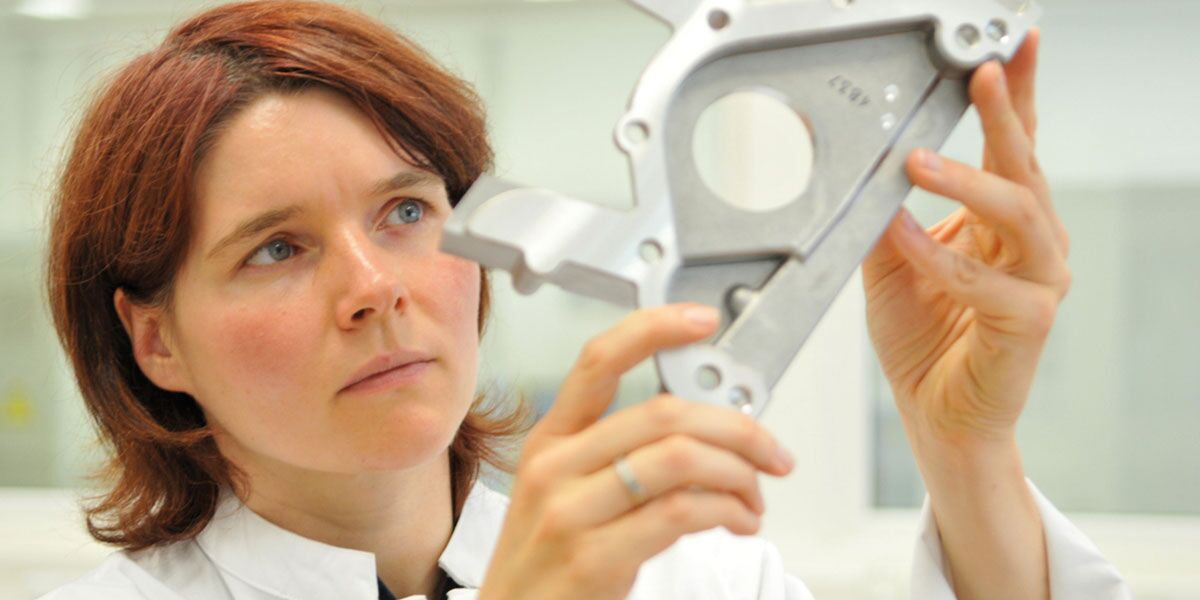Capitolul 5: Recunoașterea calificărilor profesionale

As a professional with a vocational or academic qualification, you have the legal right to have your qualification compared and evaluated against a German qualification. Since in the German labour market degrees and qualifications are decisive for your chances of employment and adequate pay, the recognition of your degrees and qualifications should be at the forefront of your efforts to find well-paid work.
In regulated professions, recognition is mandatory (regardless of the country of training). Examples of regulated professions are: Medical professions (except assistant professions), lawyer, teacher, educator or engineer. A list of all professions that are regulated in Germany can be found here.
The recognition procedure checks whether your professional qualifications are comparable with the German reference profession.
This means that the equivalence is checked. For this purpose, the competent authority will consult your documents (e.g. degrees, examinations, training content, etc.). Your professional experience also plays a role here.
The recognition procedures are carried out by different offices in Germany that are responsible for recognising vocational qualifications. The decisive factor is which occupation is involved. You can find out which office is responsible for you in the Recognition Finder, which is available in several languages.
EXAMPLE: If you would like to know whether and where you can have your training as an educator recognised, enter your profession in the Recognition Finder. Here you will find the most important information on whether your profession is regulated or not, what requirements are placed on the profession in Germany and what training you must have completed. The Recognition Finder also guides you to the office where you can apply for the determination of equivalence for your profession.
Many professions in Germany can be practised without recognised qualifications, the so-called non-regulated professions. In Germany, non-regulated occupations include all occupations that are trained in the dual system (vocational school and in-company training).
There are currently around 330 occupations. For the non-regulated occupations, formal recognition is not a mandatory requirement for entry into the job. You can apply directly to an employer as a plumber, car mechanic or even industrial clerk.
The certificate recognition offices of the federal states (Länder) decide whether a German school leaving certificate is equivalent to a German university leaving certificate for vocational purposes. You can access these offices via the anabin database. As a rule, the universities are responsible for recognising school-leaving qualifications for the purpose of university admission.
If you have obtained a university degree abroad, you can have your certificate evaluated by the Central Office for Foreign Education (Zentralstelle für ausländisches Bildungswesen, ZAB) and receive an assessment of which German university degree your qualification is comparable to. This means that you will not only be able to get into a job much more quickly, but also that your qualifications will be recog-nised accordingly. As a rule, the university to which you would like to apply is responsible for recognising your studies and examinations.
An exception to this are degree programmes that are completed with a state examination and are recognised by the respective examination offices in the federal states. They will assess for you at which level you can continue your studies in Germany.
A first point of contact for you is the student secretariats of the universities and the German Academic Exchange Service (DAAD), which also provides advice on Master's degrees and doctorates.
Detailed information on the respective recognition procedures in the academic and school sector can be found here.
The portal "Recognition in Germany" provides comprehensive and profile-related information on the various regulations and procedures for professional recognition in Germany. The "Recognition Finder" of this portal guides you step by step through the recognition procedure. In addition, you will find comprehensive information on the most important questions such as:
- How can I find out my reference occupation?
- Where can I find out whether my profession is regulated or not?
- Where can I find counselling centres?
- How does the recognition procedure work?
- What do I do if I do not get the recognition?
Citizens from the EU have the possibility to use the German guidance centre according to Art. 57b of the EU Professional Recognition Directive for the recognition of their professional qualification.
To do so, contact the German guidance centre.
CONTACT POINTS AND ADVICE ON SITE
On-site counselling:
The IQ Netzwerk Sachsen-Anhalt supports you with advice on the recognition procedure for your professional or academic qualification. Partial recognition of your profession in Germany is also supported, for example through qualification counselling. ➔
Migrationsberatung für erwachsene Zuwanderinnen und Zuwanderer (MBE) ➔
INFORMATION MATERIALS AND PORTALS
Praxisleitfaden für EU-Arbeitnehmerinnen und Arbeitnehmer in Deutschland ➔
Anerkennung Ihres Berufsabschlusses – Verfahren aus dem Ausland ➔
Anerkennung ausländischer Berufsabschlüsse ➔
Checkliste IQ Netzwerk Sachsen-Anhalt ➔
Alles was Sie wissen sollten zu Arbeit, Ausbildung und Studium ➔